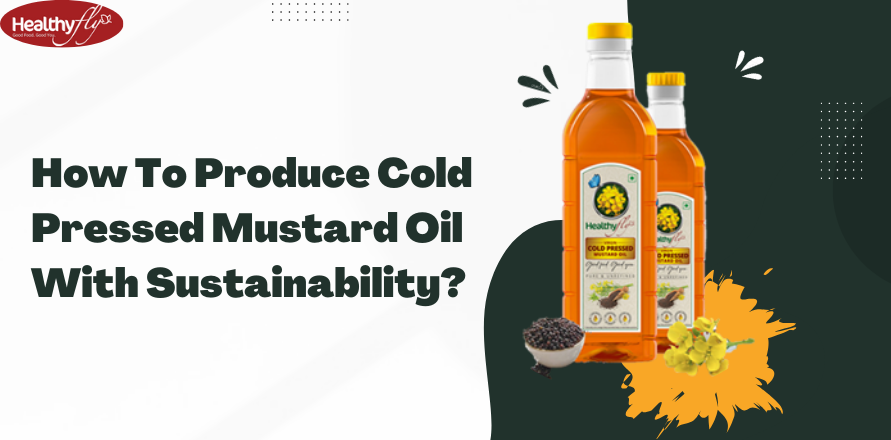In the pursuit of healthier cooking oils, cold-pressed mustard oil has emerged as a champion, celebrated for its distinct flavor and numerous health benefits. However, ensuring the sustainability of its production process adds an extra layer of appeal to this culinary gem. Let’s explore how you can produce cold-pressed mustard oil with a focus on sustainability.
- Seed Selection and Farming Practices: The journey to sustainable cold-pressed mustard oil begins with conscientious seed selection. Opt for organic and non-GMO mustard seeds, supporting biodiversity and minimizing the environmental impact. Implement eco-friendly farming practices, such as crop rotation and organic fertilizers, to cultivate mustard seeds sustainably.
- Water Conservation: Incorporate water conservation measures into the cultivation process. Employ drip irrigation systems and rainwater harvesting techniques to reduce water consumption. Efficient water management not only supports sustainability but also benefits the overall ecosystem.
- Eco-Friendly Extraction Process: The heart of producing cold-pressed mustard oil lies in the extraction process. Choose a method that is energy-efficient and minimizes waste. Cold pressing involves mechanical extraction without the use of heat or chemicals, preserving the oil’s natural properties and ensuring a sustainable production process.
- Waste Utilization: Sustainable practices include finding creative ways to utilize by-products. Mustard cake, a residue obtained after oil extraction, is rich in nutrients and can be repurposed as an organic fertilizer. This not only minimizes waste but also contributes to soil health.
- Packaging and Distribution: Opt for eco-friendly packaging materials, such as glass or recyclable PET bottles, and ensure minimal use of plastic. Implement sustainable distribution practices, favoring local markets to reduce the carbon footprint associated with transportation.
- Community Engagement: Foster relationships with local communities involved in mustard cultivation. Emphasize fair trade practices, ensuring that farmers receive equitable compensation for their efforts. Supporting local communities contributes to the social sustainability of the cold-pressed mustard oil production process.
Cold-pressed mustard oil is more than just cooking oil; it represents a commitment to health, flavor, and sustainability. As consumers increasingly prioritize eco-friendly choices, producers play a crucial role in meeting these expectations. By adopting sustainable practices throughout the production journey, from seed to bottle, cold-pressed mustard oil becomes not just a culinary delight but a symbol of responsible and mindful consumption.
In conclusion, producing cold-pressed mustard oil with sustainability at its core involves mindful choices at every stage of the process. By selecting organic seeds, implementing eco-friendly farming practices, utilizing efficient extraction methods, managing waste responsibly, and engaging with local communities, you can craft a product that not only enhances culinary experiences but also reflects a commitment to a sustainable and greener future. Cold-pressed mustard oil is not just a cooking oil; it’s a conscious choice for those who value health, flavor, and the well-being of our planet.
Also Read: Differences Between Cold-Pressed Mustard Oil And Regular Mustard Oil
Must Watch Video:
